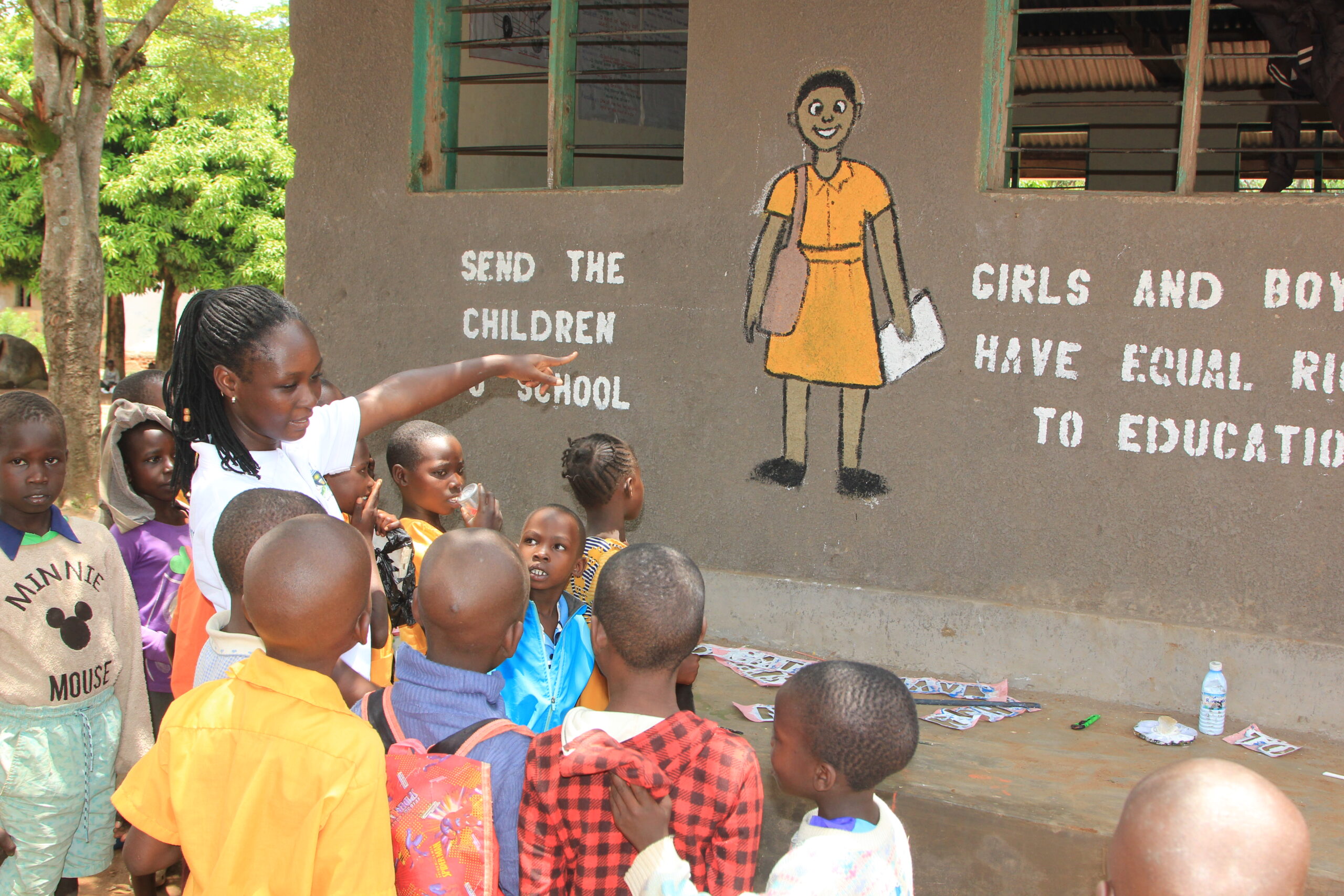Strong government cooperation and social norms change
No schools, no interest
Juliet Wajega is the WNCB country coordinator for Hivos in Uganda. She has been involved in the programme from the start in 2019 and vividly remembers what the starting situation was like in Karamoja region. “When we started, there were no schools in any of the villages. Girls were not going to school, many boys were working as herdsmen, and many others were working in the mines. Nobody seemed bothered about having schools and nobody was asking for social support or services. And then we came in, presenting this idea of education. At first, people did not like the concept at all. If we would go to a family with – let’s say – five children, in the best case they would tell us: ‘Okay, this one can go to school, but the others will help me with our work and income.’”
“It was quite difficult to start the project in Karamoja region”, Juliet emphasizes. “But we kept on repeating our messages about the value and importance of education. The children themselves were very enthusiastic about the idea of going to school. They didn’t need convincing. The parents, on the other hand, needed to be shown that it is really not normal for children to work in the fields, and certainly not in the mines.”
Raising awareness
Juliet: “We spread these messages in live presentations, we went to talk to the people in the communities, we reached out to youth groups, women groups. Clearly, many people in this region do not have smartphones, there is no network available in some areas, so it really comes down to direct communication. Sometimes we were able to make use of the public address systems that are in place in some of our communities. Part of our strategy was also to spread our messages through community leaders and influential people. Always trying to find new people that could help us with our campaigns and become our ambassadors.”
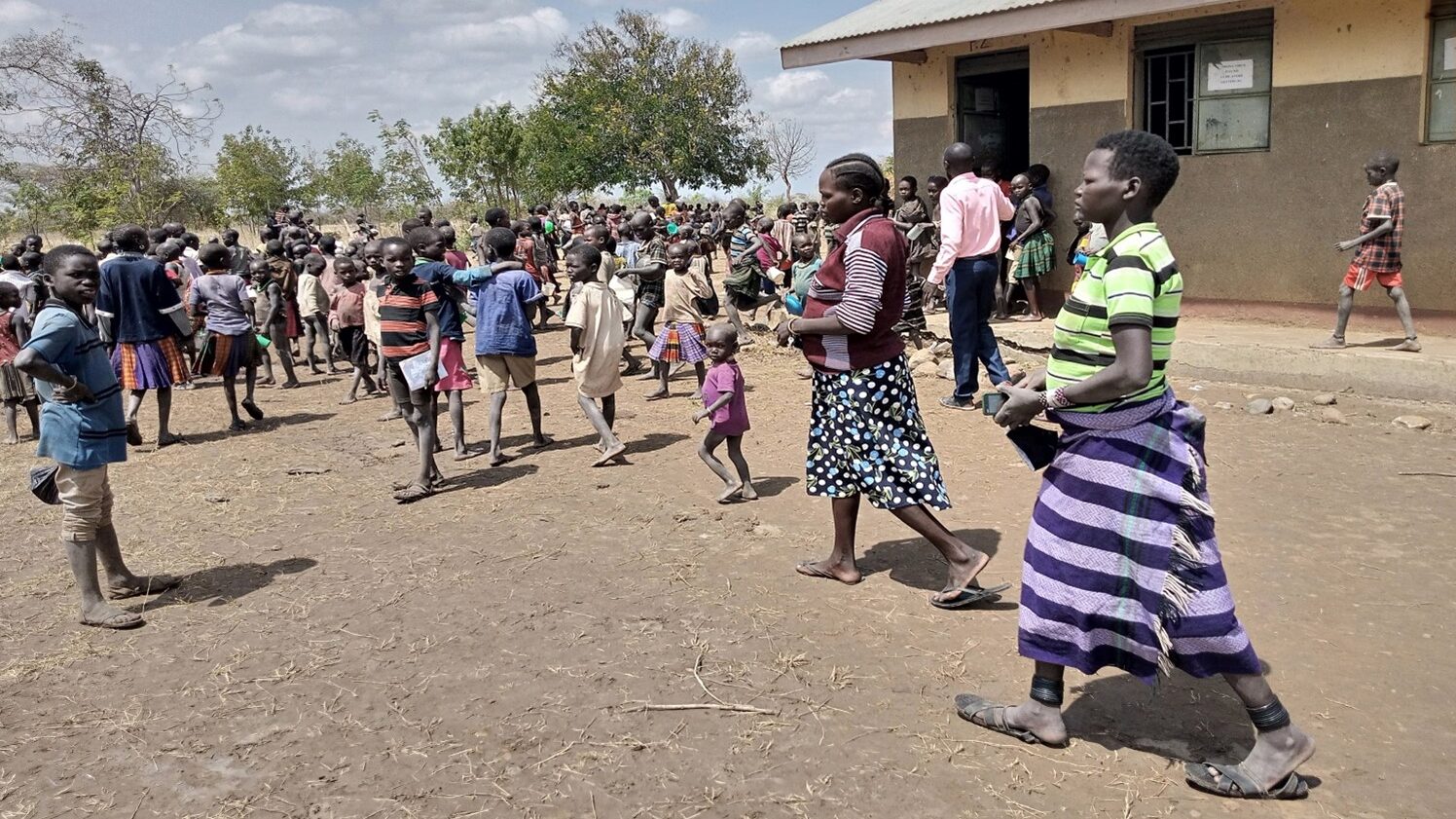
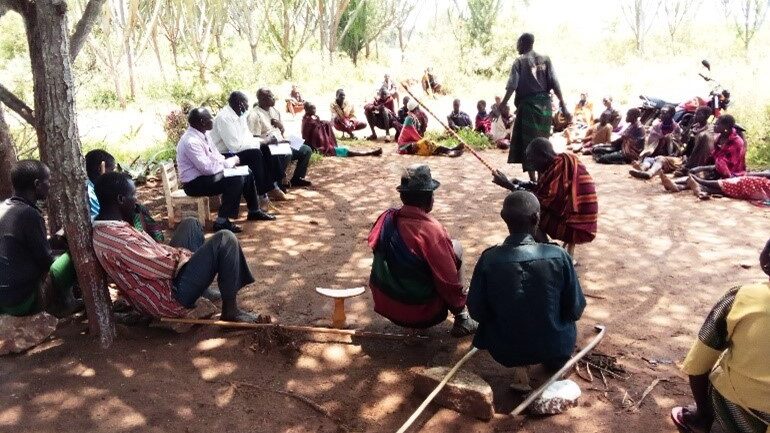
Juliet: “We spread these messages in live presentations, we went to talk to the people in the communities, we reached out to youth groups, women groups. Clearly, many people in this region do not have smartphones, there is no network available, so it really comes down to direct communication. Sometimes we were able to make use of the public announcement systems that are in place in some of our communities. Part of our strategy was also to spread our messages through community leaders and influential people. Always trying to find new people that could help us with our campaigns and become our ambassadors.”
First structures in place, community commitment
Gradually, the efforts started paying off. Juliet recalls how people from the communities started setting up structures where children could gather for lessons. “In some cases, it was nothing more than a place under a tree, a location allocated by the community. In another place it was a temporary structure, no walls, just a roof construction to protect the children against the sun. But no matter how simple the structures were, the initiatives did show the community commitment that was growing.”
“In the beginning we were working with teachers from the community themselves”, Juliet continues. “Adults that were able to teach the children some reading and writing skills. Parents started to see that it was working out. And later on, when we invited officials from the department of education, we were in a good position to show them our progress and commitment. Seeing this made them decide to send in some qualified teachers that would be on the government’s payroll. That helped us grow and spark further motivation in the communities. Now we have come so far that we succeeded in setting up three classrooms in all the Karamoja communities that we work in. The first three learning years of primary education are in place.”
Covid-19: intensified back to school campaigns
As a result of the Covid-19 pandemic, all WNCB activities had to be paused for nearly two years. Poverty increased and for many families it became so difficult that they were, once again, sending their children to work. Because so many children had lacked almost two years of education, the WNCB partners started back to school campaigns. Juliet: “We followed an approach that was similar to our first awareness campaigns. We just intensified it. We were also appearing in radio programmes on local stations. And it led to result. Once the children could go back to school, in one of our communities we had around 400 children in one class, with one teacher. With two years lost, three age groups were starting primary school at once. Since then, obviously, the local governments have been able to form more classes and bring more teachers on board.”
In addition to this, during the pandemic, a very high number of teenage girls became pregnant. “After Covid-19, the situation was so bad that the Ministry of Education and Sports came with guidelines to make sure that teenage mothers would be able to re-enter school. We teamed up with the ministry and during our back-to-school campaigns we helped disseminate those guidelines.”
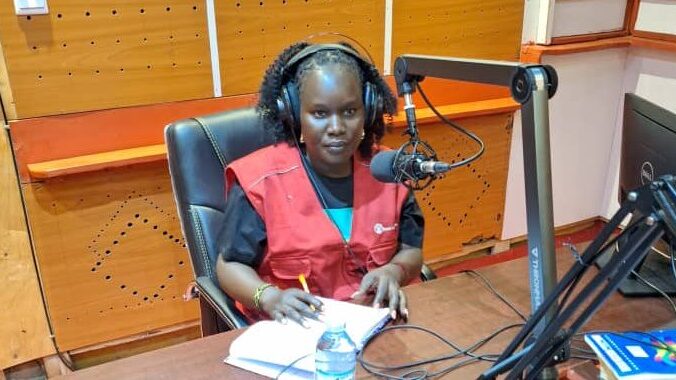
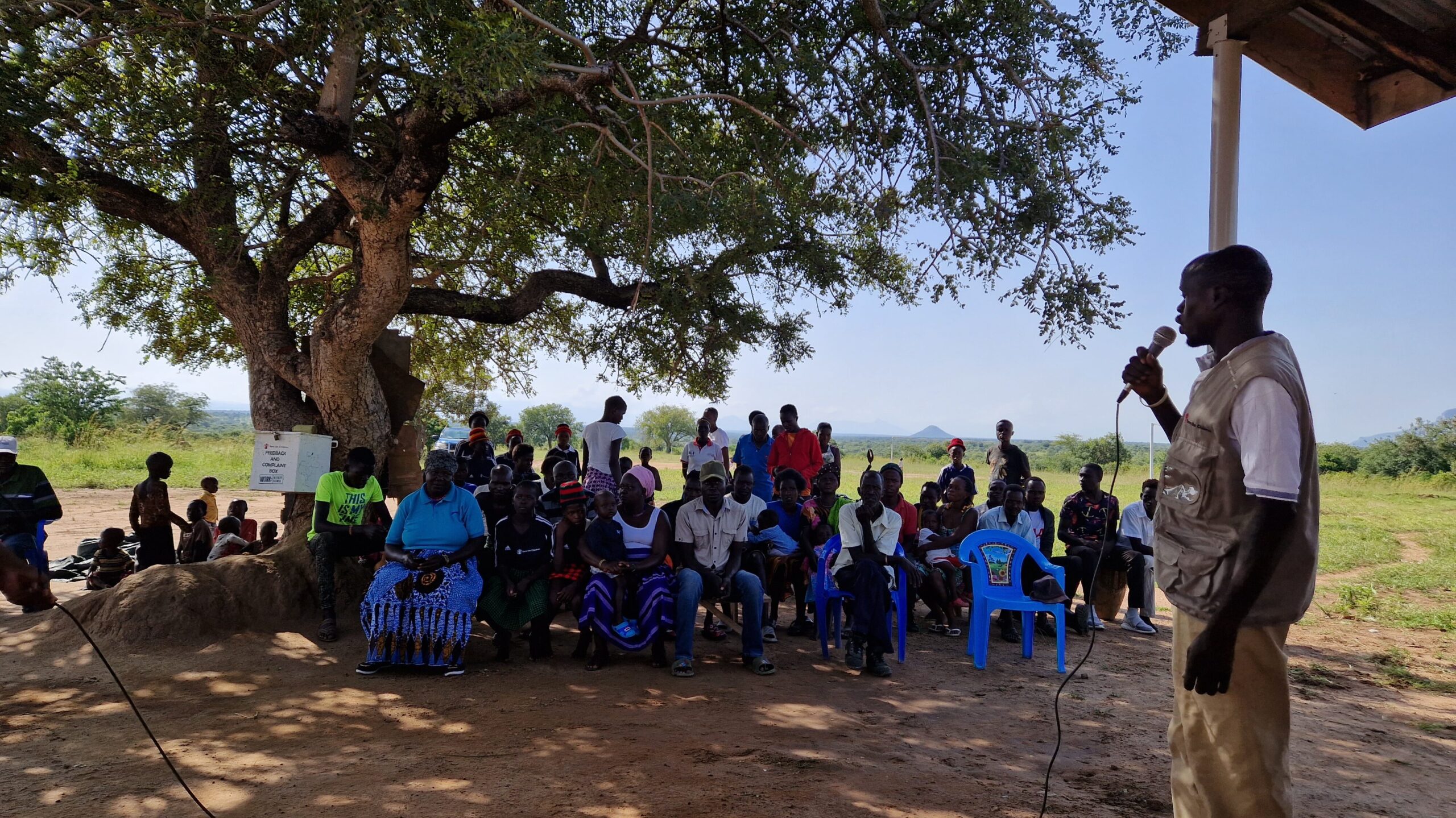
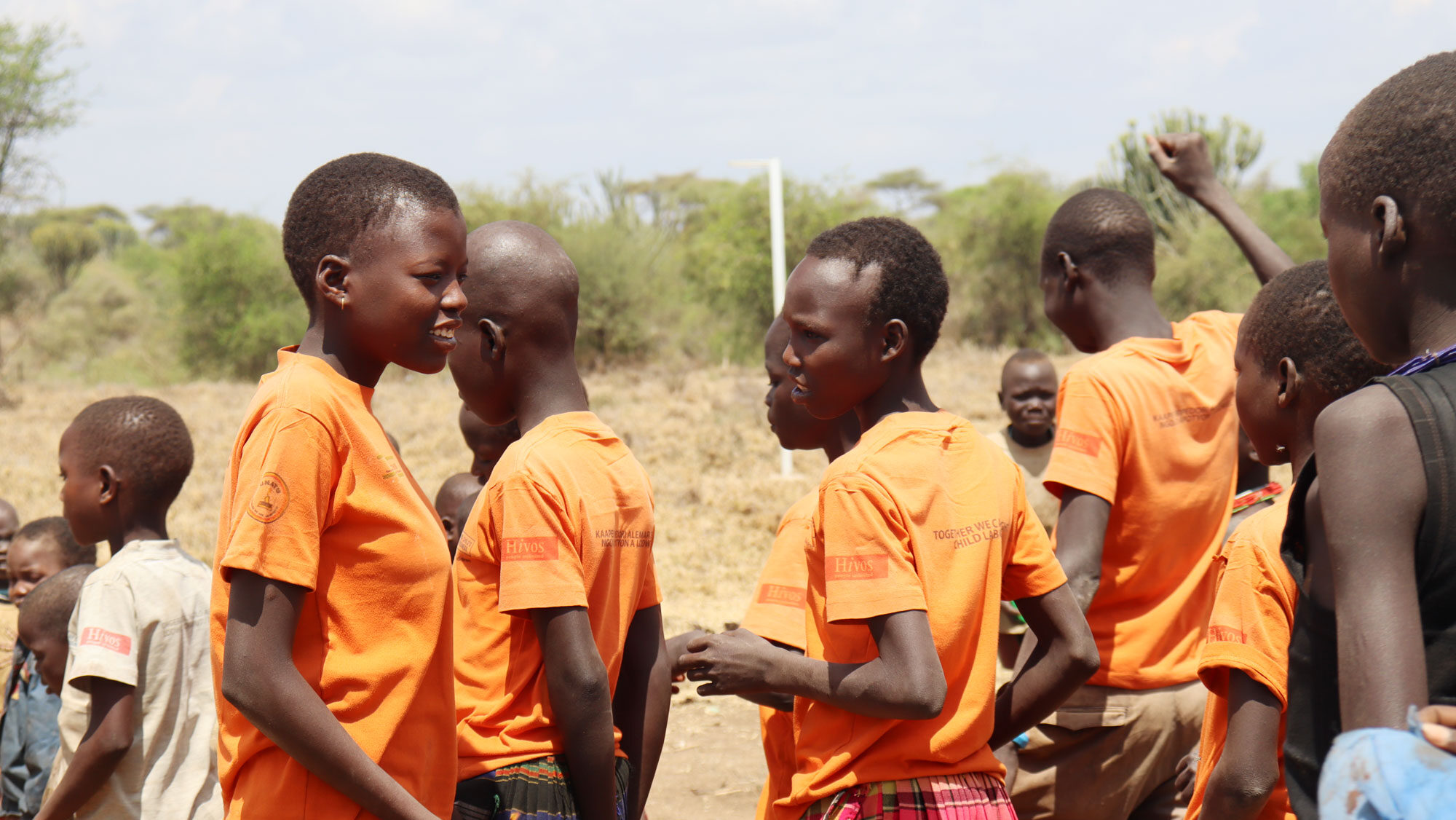
Ambassadors at all levels
According to Juliet, a very important part of WNCB’s work lies in the lobby and advocacy activities. “For any project to be successful in regions like this, you need to speak to the community leaders, local politicians, cultural leaders. They are influential as they are the ones that speak out to the communities. We always focus on the importance of cooperation. We show leaders that they are part of the programme. That it is their programme too. And that they, themselves, need to lobby for our programme too at all levels and with all parties that they engage with.”
Nowadays, Juliet sees a lot of commitment with the cultural and political leaders from her communities, but also with people in general. “I see people who never went to school themselves, speak very passionately about the need for their children to be out of the mines and in school. The communities now claim their rights and call on the local government to strengthen child protection systems and provide public services, including accessible and quality education. This shows how we now have ambassadors at all levels. Something that is crucial to further spread the message of the importance of education in our fight against child labour.”
Working towards sustainability and government takeover
Looking back, Juliet sees that a lot of improvements have been realized in Karamoja region. “From a situation where there was nothing, we now have classrooms for the first three years of education in the communities that we work in. Government has stepped up and, in a first phase, has helped with sending in teachers. And recently, in Nanyidik (Moroto district), the existing infrastructure has been officially handed over to the local government. It is now known as Nanyidik Primary School. In fact, in the other communities that we work in, government has also committed to adding more classrooms and teachers. This will guarantee up to seven years of primary education.”
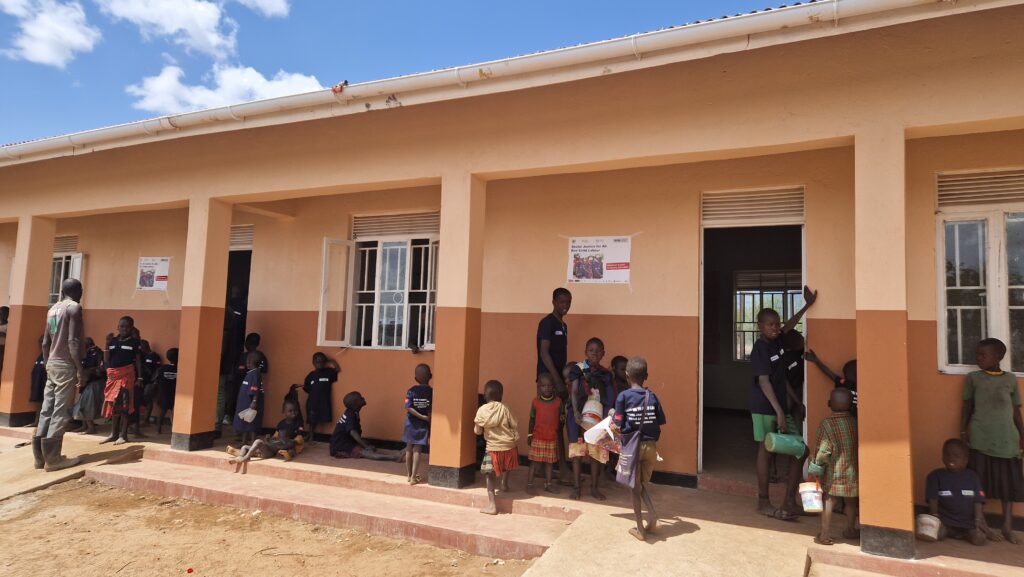
“It is good news that we are receiving the support of local leaders, even members of parliament. Some people contribute by providing school uniforms, others are helping with getting school desks in place. We need to make sure that we further strengthen the capacity of our communities and make our initiatives resilient. The government handover is our best guarantee that the good things achieved will continue. That our good practices and models can be re-used also in any region that is fighting child labour.”
Juliet Wajega, WNCB country coordinator Uganda

